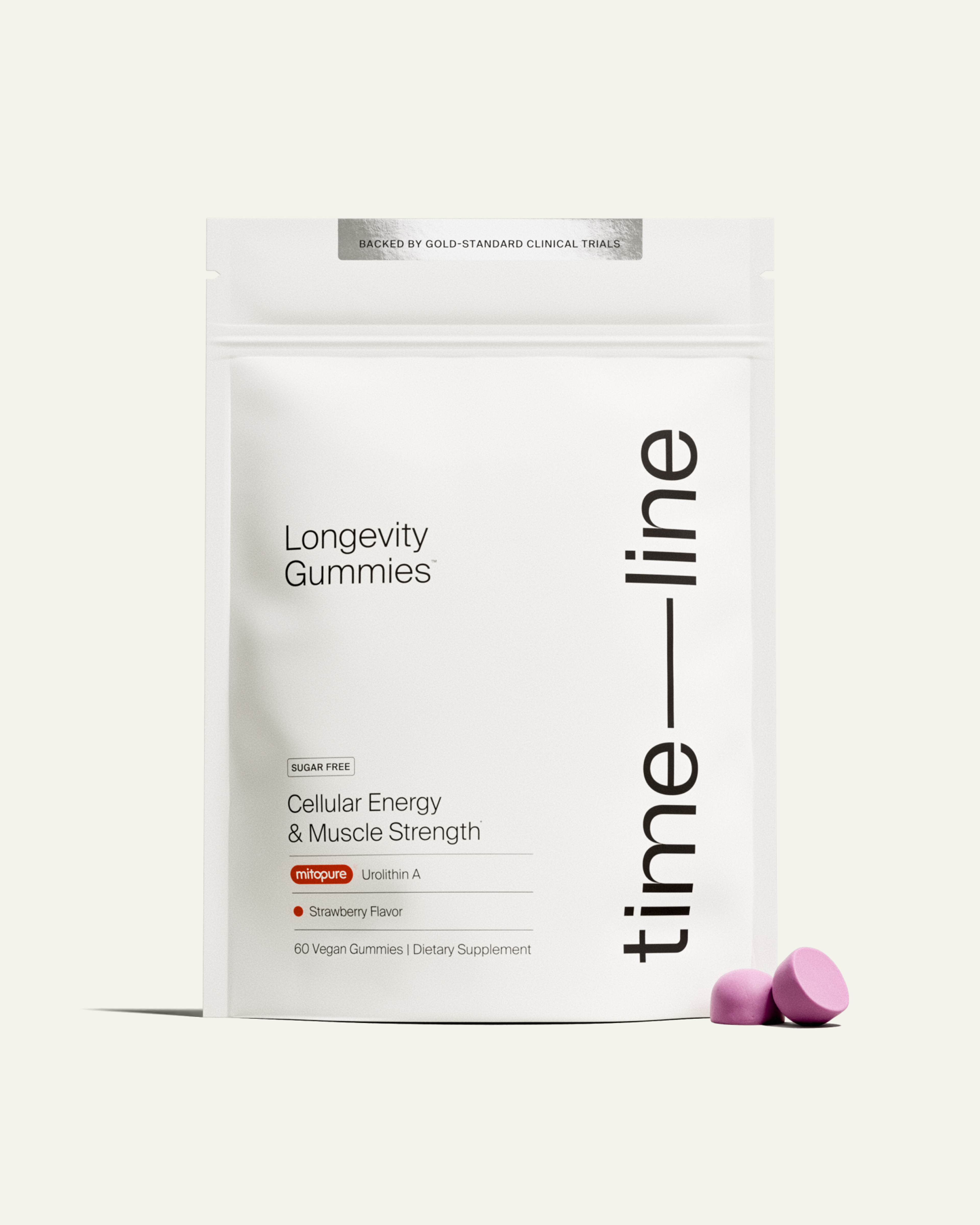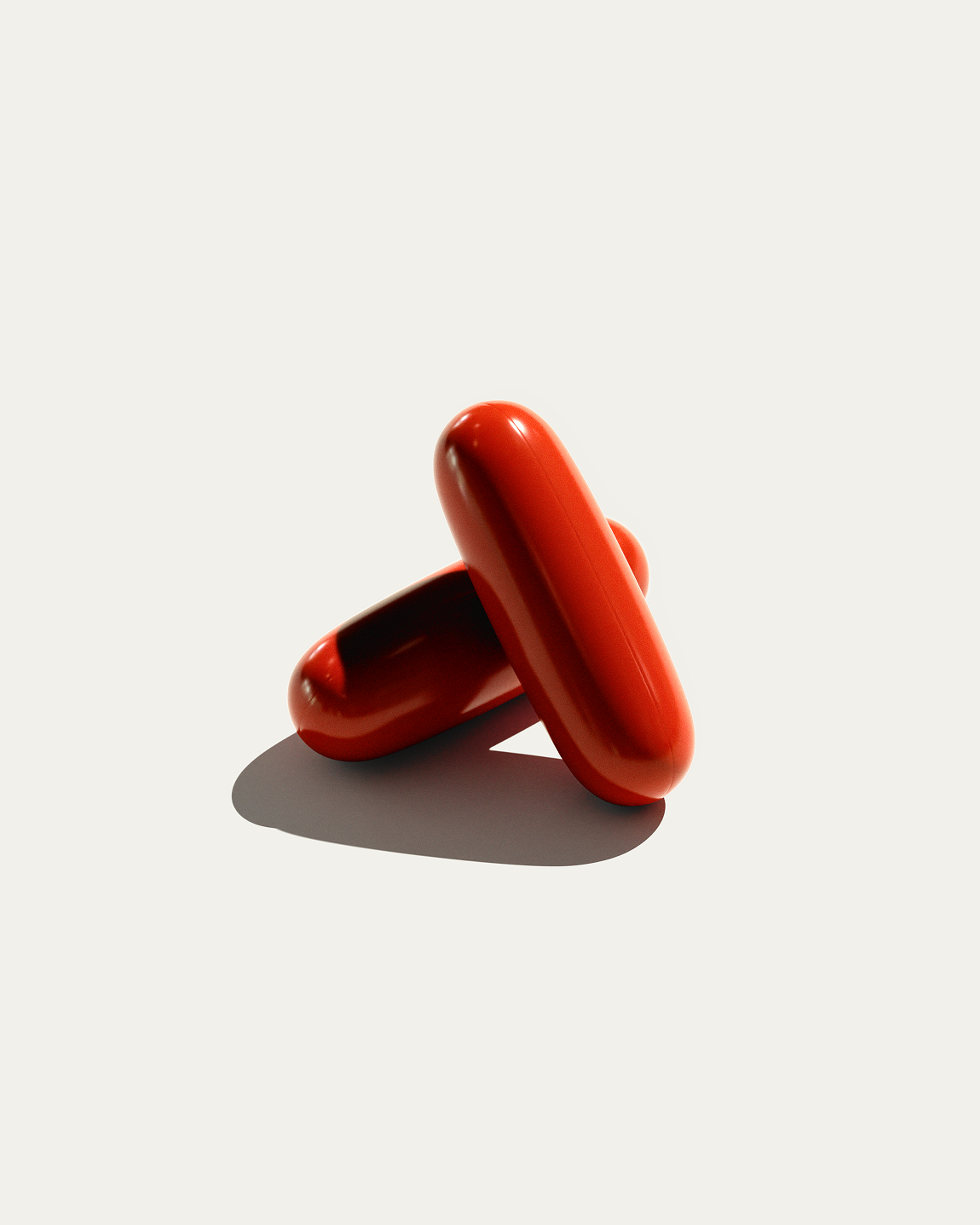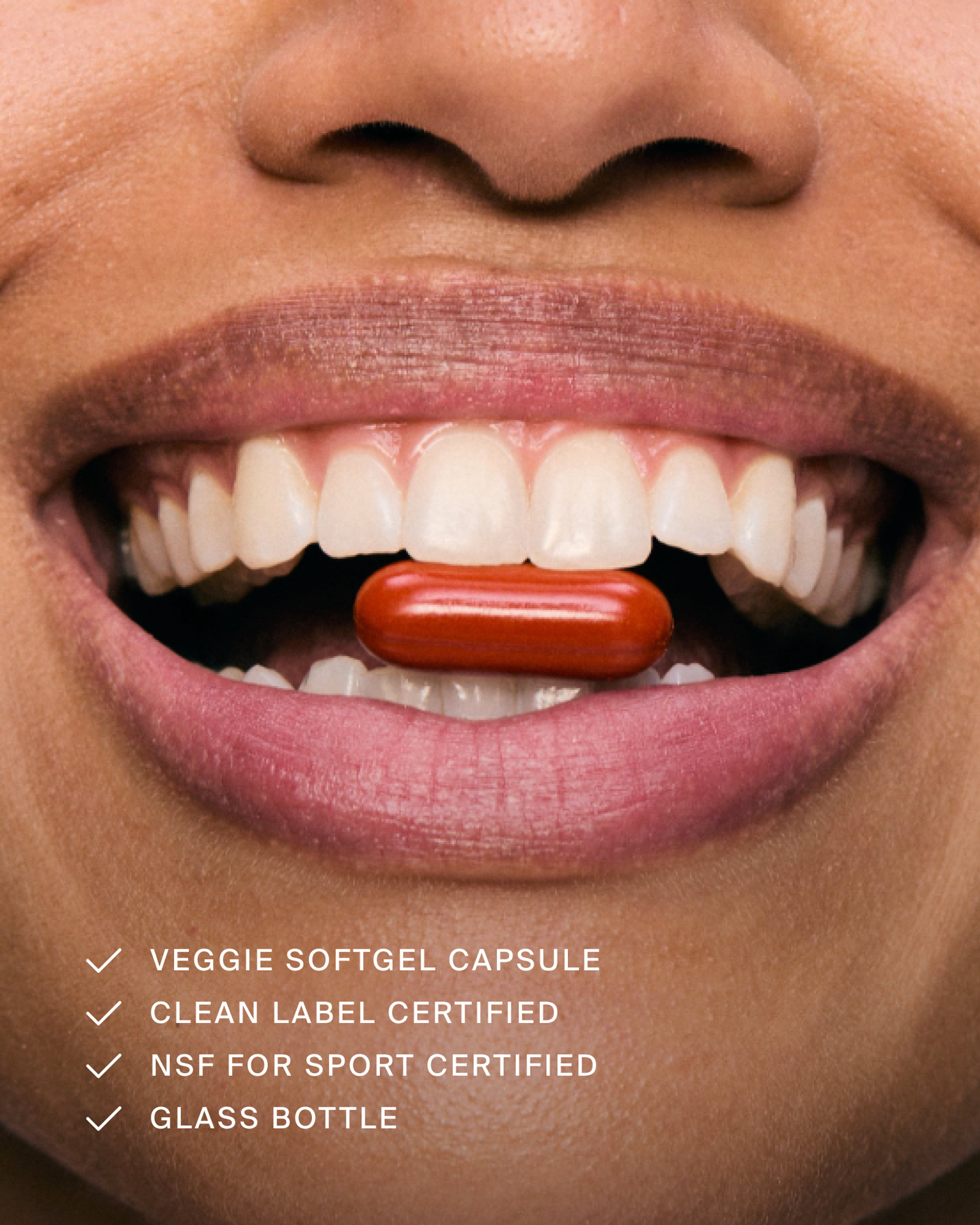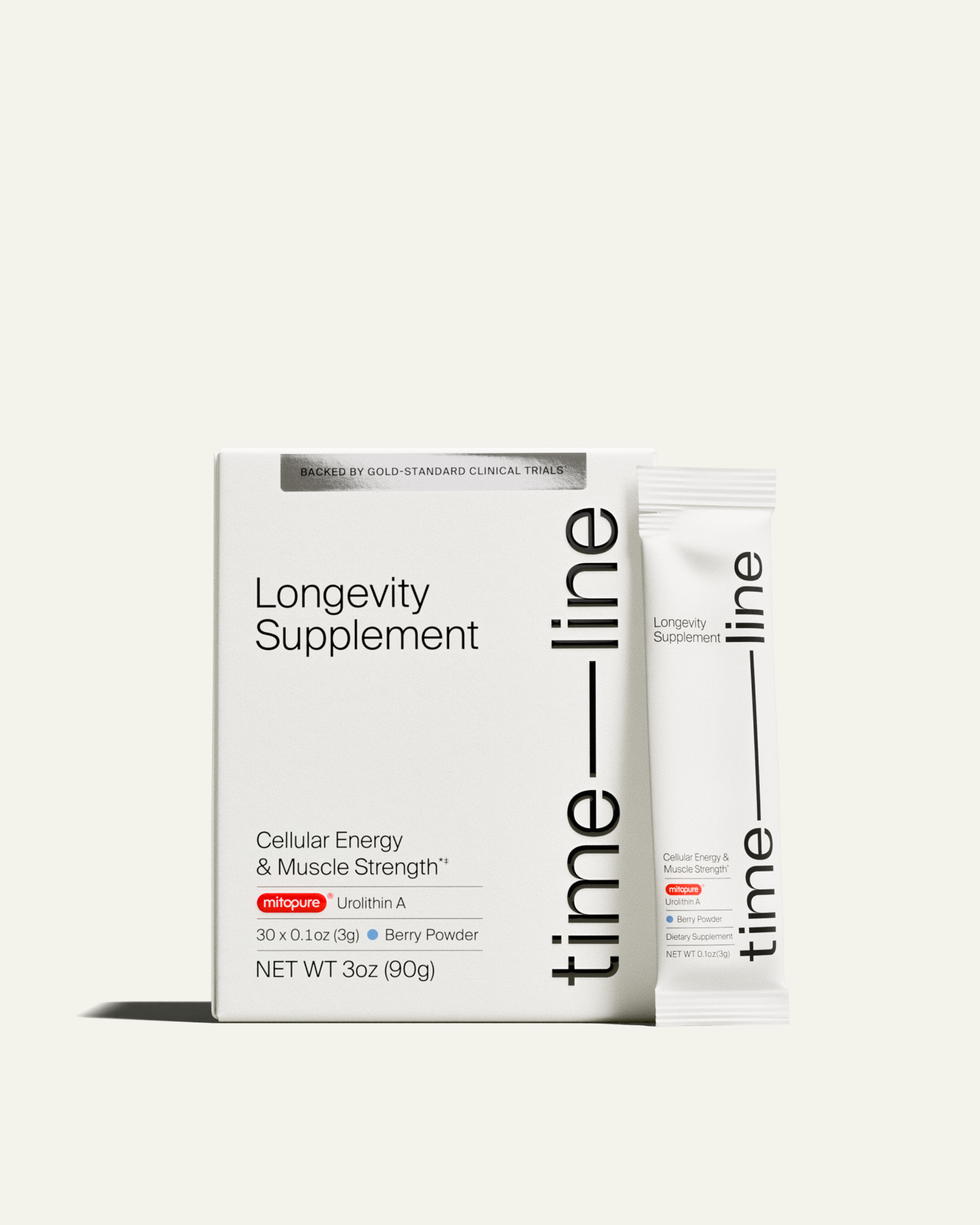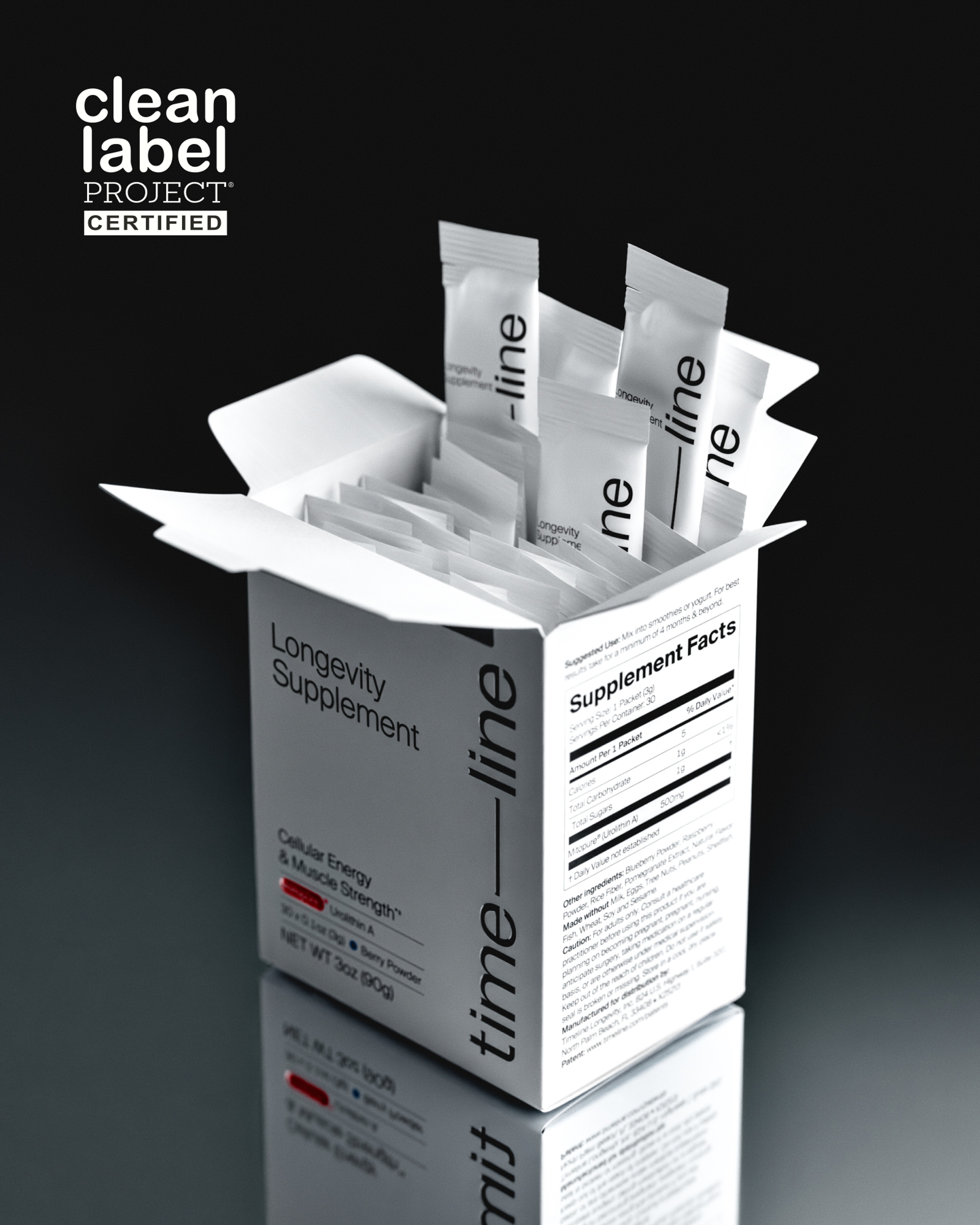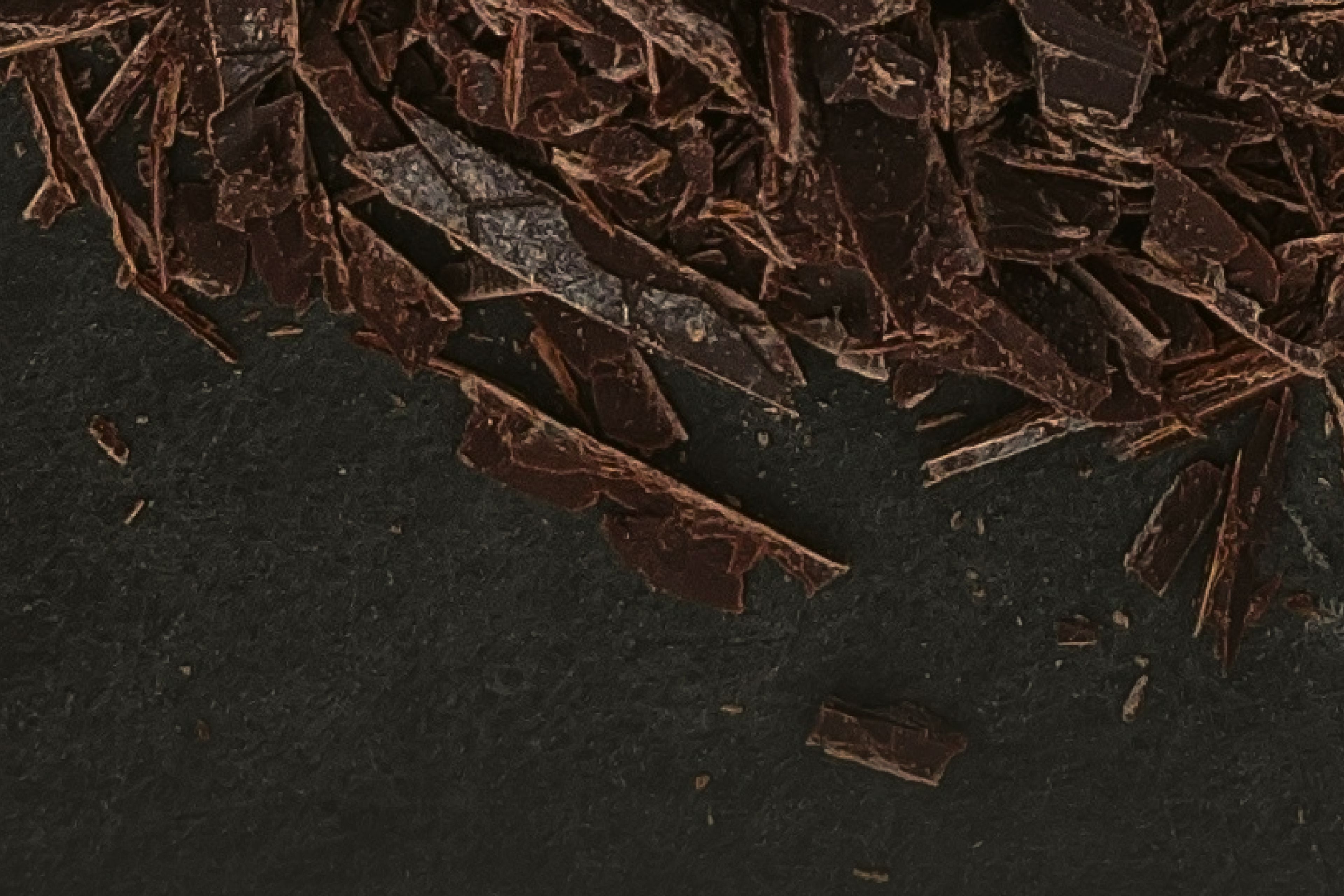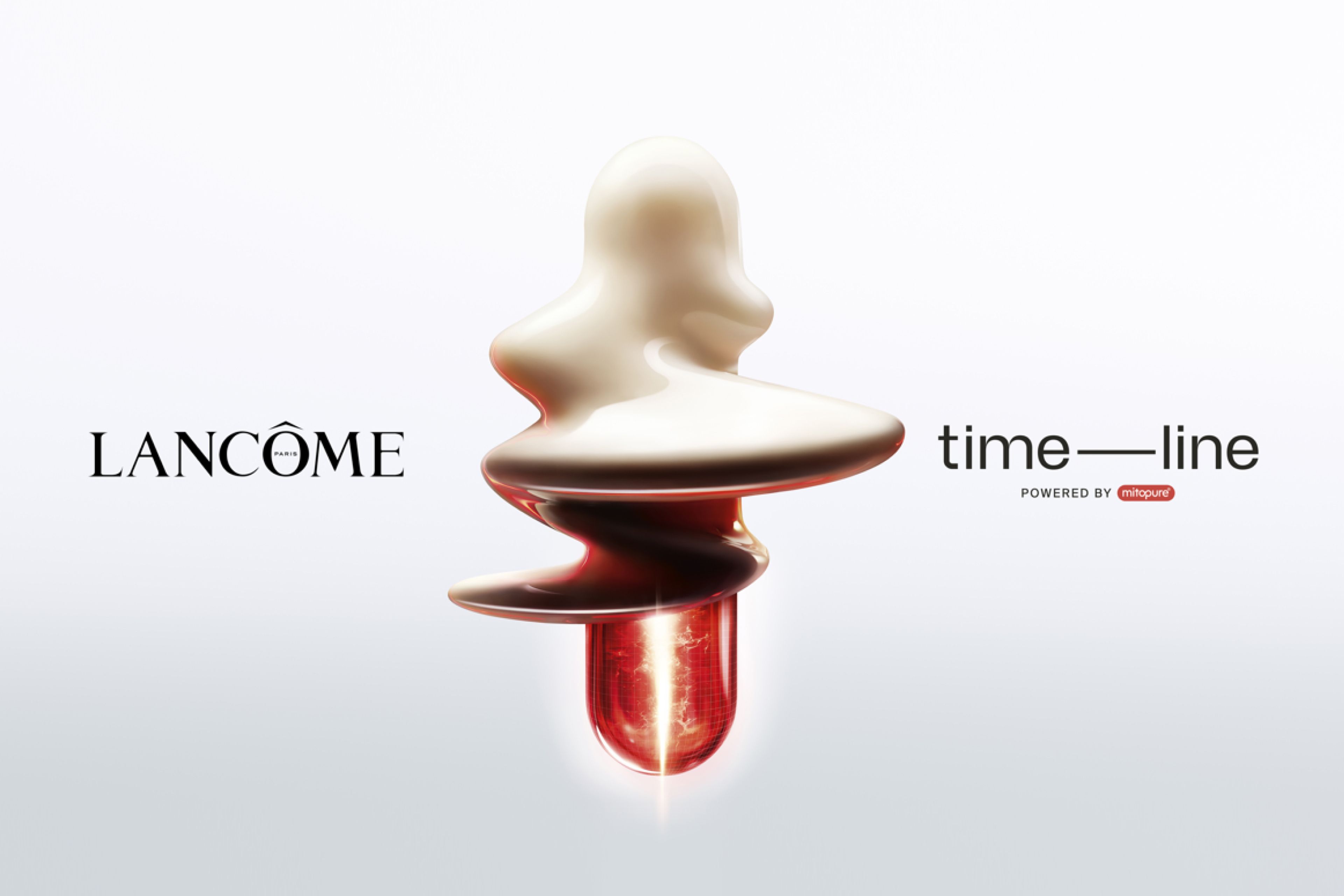Urolithin A and Cardiovascular Health: Study Summary
Preclinical study summary examining how urolithin A may influence cardiovascular disease risk and support healthy heart aging
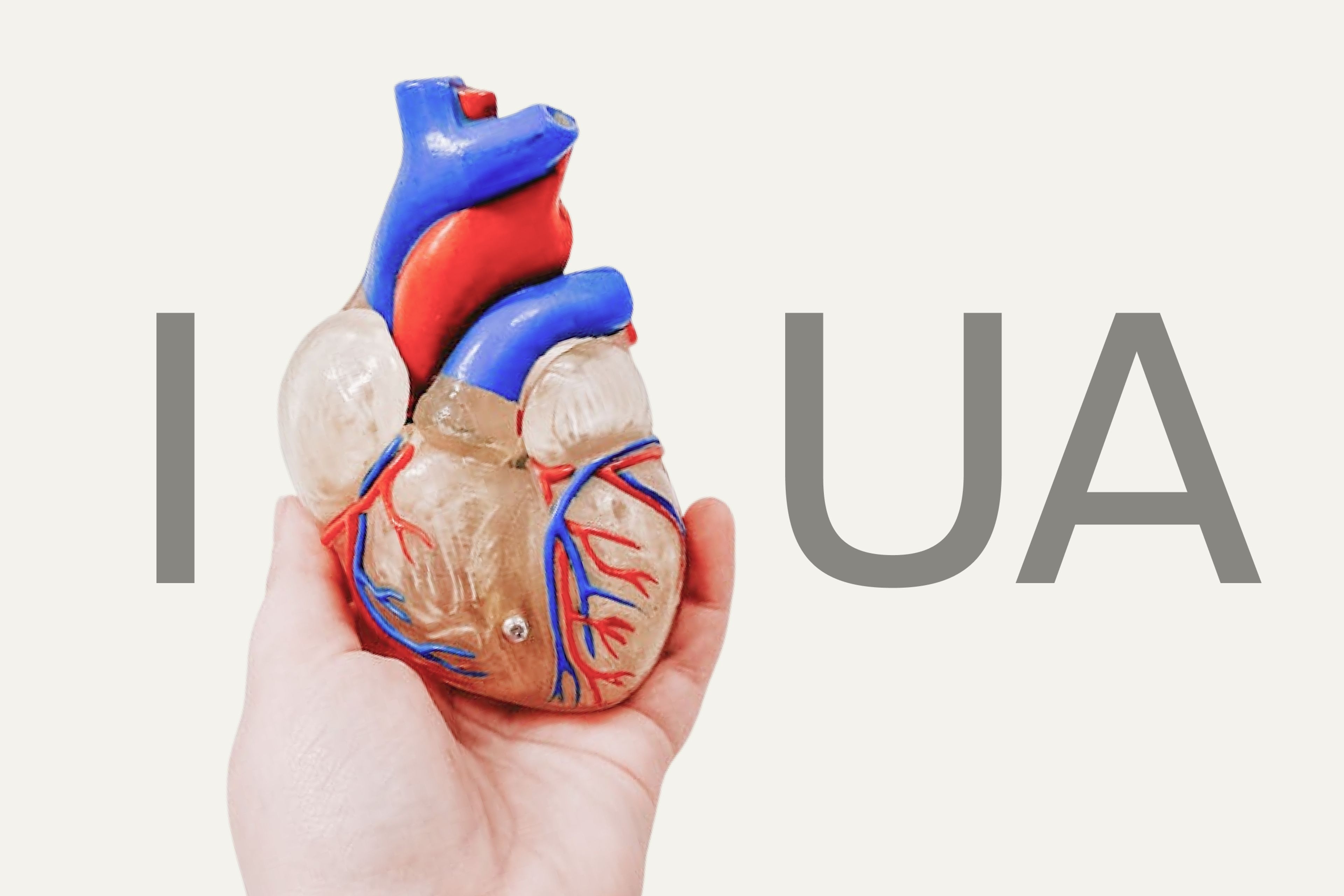
What to know
Cardiovascular disease is the leading cause of death in the U.S.
Decreased functioning of the mitochondria impairs heart function and contributes to cardiovascular disease
New research investigated how supplementation with urolithin A affects cardiovascular health in rats
Study findings showed that urolithin A improved mitochondrial function and reduced plasma ceramides
Supplementation with urolithin A holds promise when it comes to supporting healthy heart aging
Cardiovascular disease (CVD) remains the leading cause of death in the U.S. and is a major driver of healthcare costs. While lifestyle and genetics play well-known roles, science is now zooming in at the cellular level to understand what drives heart dysfunction from the inside out. One key player? The mitochondria.
Often dubbed the cell’s “powerhouse.” When these tiny energy generators falter, so does the heart’s ability to function efficiently. That’s why targeting mitochondrial health is emerging as a promising strategy for improving cardiac performance and preventing disease.[1]
Now, new preclinical data sheds light on how Urolithin A may support heart health.
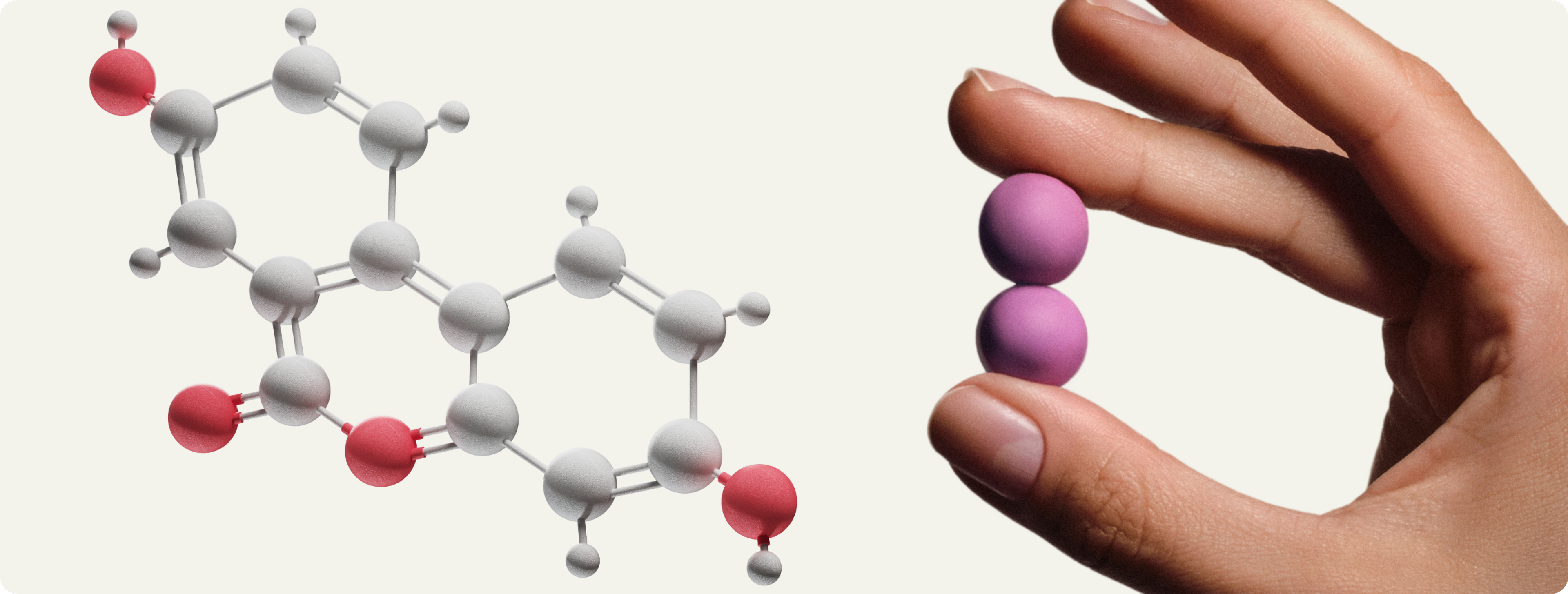
What is Urolithin A
Urolithin A is a natural compound produced by the gut microbiome after consuming ellagitannin-rich foods such as pomegranates, berries, and nuts. It activates a cellular recycling process called mitophagy, which clears out old, damaged mitochondria and replaces them with newer, more efficient ones.[2]
However, most people either lack the right gut microbes to make Urolithin A or do not consume enough of its dietary precursors to gain meaningful benefits.[3] As a result, many turn to supplementation to ensure consistent and effective levels.
Clinical studies have demonstrated that supplementing with Urolithin A:
With its proven efficacy and safety, Urolithin A is now being studied for a wide range of aging-related concerns beyond skeletal muscle, including cardiac health.
New Preclinical Data on Urolithin A and Heart Health
A 2025 preclinical study published in iScience sheds new light on how Urolithin A may support heart health. Conducted in collaboration with Timeline’s Research and Development team and Dr. David Marcinek’s group at the University of Washington, the study investigated dietary Urolithin A supplementation in animal models of heart disease. Here are the results from the publication.
Mitochondrial Dysfunction: A Hallmark of Cardiovascular Aging
The researchers began by confirming, through a review of prior data, that mitochondrial dysfunction is a hallmark of cardiac aging. This finding reinforced the value of targeting mitochondrial health to improve heart function.
Cardiac Benefits of Urolithin A in Animal Models with Heart Disease
The authors then moved to testing Urolithin A in animal models of heart failure. A heart attack was induced in one group of rats, while another group served as a healthy control. Among the heart attack rats, some received Urolithin A for two months, while others received no treatment
The results showed that two months of Urolithin A supplementation improved multiple measures of heart health, including:
- Ejection fraction — indicating the heart pumped blood more effectively
- Diastolic function — showing improved relaxation between beats
- Chamber size — preventing harmful enlargement of the heart’s chambers
In addition, Urolithin A helped correct defects in mitochondrial gene expression that are associated with heart failure, supporting its role as a mitochondrial health booster.
Urolithin A Enhances Heart Function in Healthy Older Animals
The researchers also examined the effects of Urolithin A on cardiac function in older rodents without disease. They tested it in old mice (about 24 months old — representing a human in their 70s) and compared them to young mice (about 5 months old). The older mice were fed either their standard diet or a diet enriched with Urolithin A for two months.
The study found several key improvements in older mice that received Urolithin A supplementation:
- Improved diastolic function – indicating better heart relaxation between beats.
- Enhanced systolic function – reflecting stronger heart contractions.
- Preserved ejection fraction (EF) – maintaining this key measure of how much blood the heart pumps out with each beat.
- Maintained skeletal muscle strength – while mice on a standard diet lost muscle strength, those given Urolithin A retained it.
- Stable mitochondrial respiration – no significant differences were seen compared to untreated mice, suggesting the primary benefits were functional rather than due to large changes in baseline energy output.
Improved mitochondrial structure
The study also examined the effects of Urolithin A on mitochondrial shape and structure in another set of mice, both 21 months old and 2 months old. Supplementation reversed age-related changes in heart mitochondria in the older mice to levels similar to those of the younger mice. Urolithin A also helped to improve impaired mitophagy seen in the older mice
Urolithin A improves plasma ceramide levels
The researchers also explored the effects of Urolithin A on plasma ceramides, a clinically relevant biomarker of heart health. Ceramides are a type of lipid, and certain subtypes are being investigated as emerging markers for cardiovascular disease risk.[7]
In this study, done in humans, daily supplementation with 1 gram of Urolithin A for 4 months reduced plasma ceramide levels, which are biomarkers studied in relation to cardiovascular health.
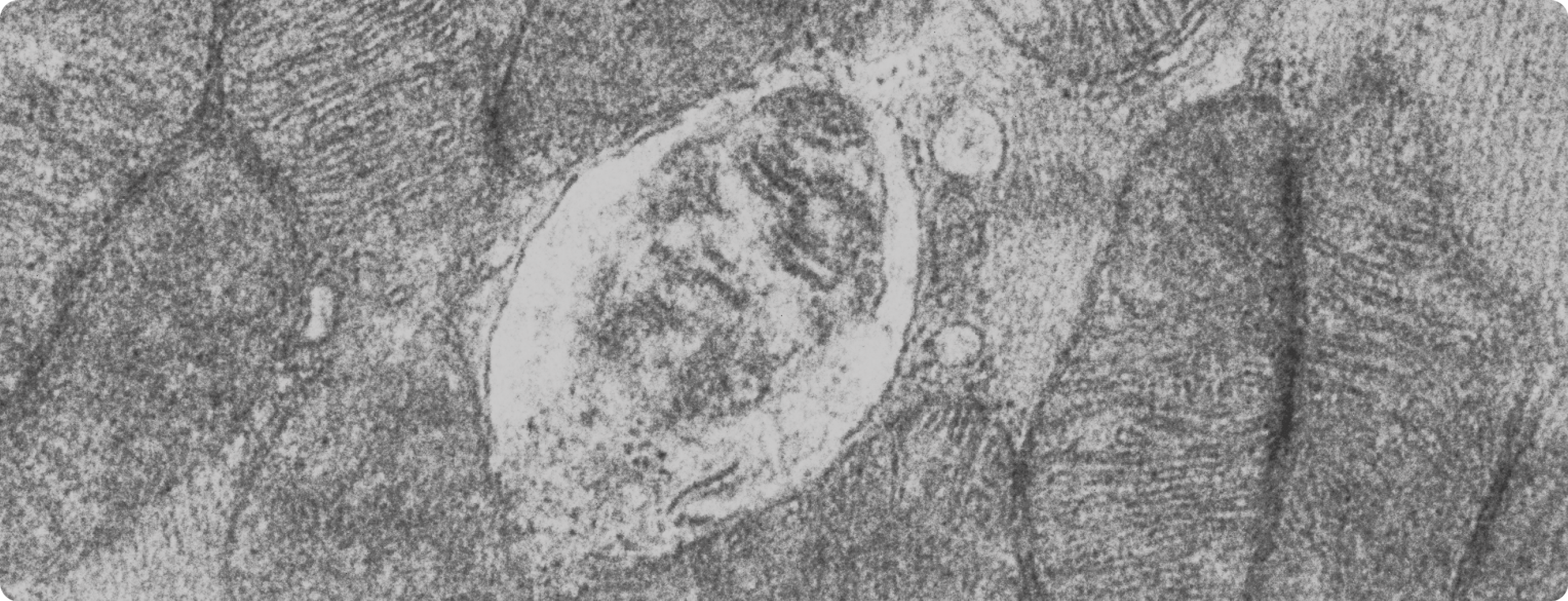
Key Takeaways: Mitochondria and CVD Risk
Cardiovascular health remains one of the greatest health challenges of our time, and targeting mitochondrial health offers a promising new angle for prevention and intervention. The new preclinical data from iScience adds to a growing body of evidence showing that Urolithin A — a compound already proven to benefit skeletal muscle — may also support heart health.
While more human studies focused on heart outcomes are still needed, the findings reinforce the value of supporting mitochondrial health as we age.
Disclaimer: Ceramides are an emerging biomarker for cardiovascular health. However, traditional laboratory markers, including a standard lipid panel, remain the established tools for assessing cardiovascular risk and are widely used in clinical practice. Always consult your physician about the best approach to evaluating your personal risk.
Authors

Written by
Professor of Nutrition & Scientific Writer

Reviewed by
Director Science Communications
References
- ↑
Brown DA, Perry JB, Allen ME, Sabbah HN, Stauffer BL, Shaikh SR, Cleland JG, Colucci WS, Butler J, Voors AA, Anker SD, Pitt B, Pieske B, Filippatos G, Greene SJ, Gheorghiade M. Expert consensus document: Mitochondrial function as a therapeutic target in heart failure. Nat Rev Cardiol. 2017 Apr;14(4):238-250. doi: 10.1038/nrcardio.2016.203. Epub 2016 Dec 22. PMID: 28004807; PMCID: PMC5350035.
- ↑
D'Amico D, Andreux PA, Valdés P, Singh A, Rinsch C, Auwerx J. Impact of the Natural Compound Urolithin A on Health, Disease, and Aging. Trends Mol Med. 2021 Jul;27(7):687-699. doi: 10.1016/j.molmed.2021.04.009. Epub 2021 May 21. PMID: 34030963.
- ↑
Singh, A., D’Amico, D., Andreux, P.A. et al. Direct supplementation with Urolithin A overcomes limitations of dietary exposure and gut microbiome variability in healthy adults to achieve consistent levels across the population. Eur J Clin Nutr 76, 297–308 (2022). https://doi.org/10.1038/s41430-021-00950-1 (https://www.google.com/url?q=https://doi.org/10.1038/s41430-021-00950-1&sa=D&source=docs&ust=1758805468376503&usg=AOvVaw2TLqPb_kQHt_8t7oDAiqVw)
- ↑
Andreux, P.A., Blanco-Bose, W., Ryu, D. et al. The mitophagy activator urolithin A is safe and induces a molecular signature of improved mitochondrial and cellular health in humans. Nat Metab 1, 595–603 (2019). https://doi.org/10.1038/s42255-019-0073-4 (https://www.google.com/url?q=https://doi.org/10.1038/s42255-019-0073-4&sa=D&source=docs&ust=1758805468363984&usg=AOvVaw3ClG87RNxqkUpPNISTS7Kt)
- ↑
Andreux, P.A., Blanco-Bose, W., Ryu, D. et al. The mitophagy activator urolithin A is safe and induces a molecular signature of improved mitochondrial and cellular health in humans. Nat Metab 1, 595–603 (2019). https://doi.org/10.1038/s42255-019-0073-4 (https://www.google.com/url?q=https://doi.org/10.1038/s42255-019-0073-4&sa=D&source=docs&ust=1758805468366069&usg=AOvVaw3rGBhITXoe8G7OSkbxfPGj)
- ↑
Singh, Anurag et al. “Urolithin A improves muscle strength, exercise performance, and biomarkers of mitochondrial health in a randomized trial in middle-aged adults.” Cell reports. Medicine vol. 3,5 (2022): 100633. doi:10.1016/j.xcrm.2022.100633
- ↑
Choi, R.H., Tatum, S.M., Symons, J.D. et al. Ceramides and other sphingolipids as drivers of cardiovascular disease. Nat Rev Cardiol 18, 701–711 (2021). https://doi.org/10.1038/s41569-021-00536-1 (https://www.google.com/url?q=https://doi.org/10.1038/s41569-021-00536-1&sa=D&source=docs&ust=1758805468396360&usg=AOvVaw0dK6b-jBb4_4jt9qMoLIhb)
